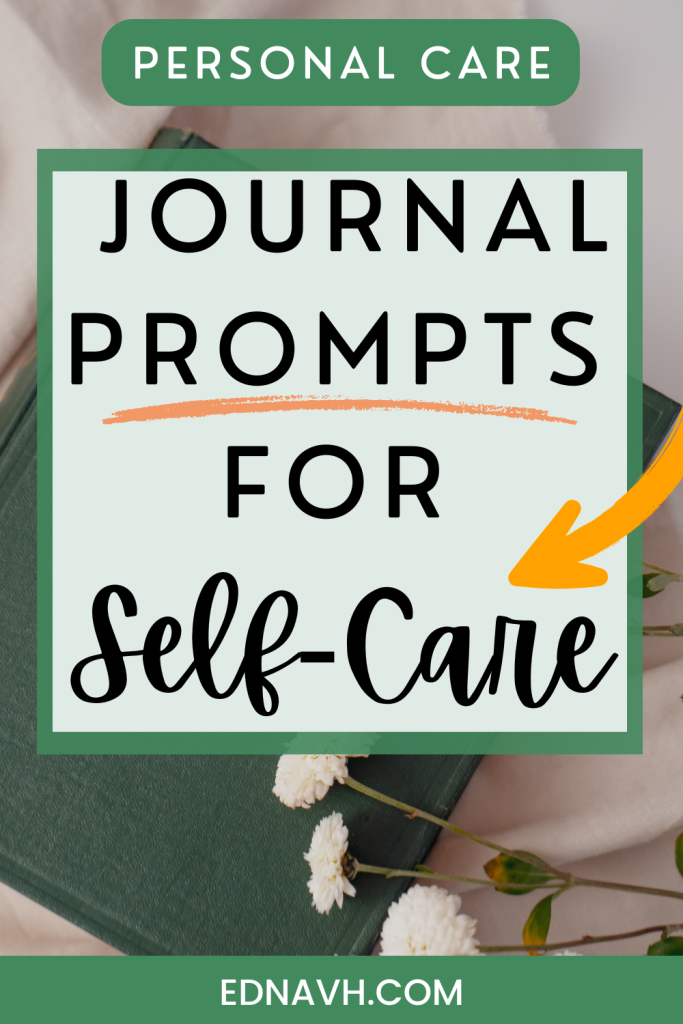A Guide To Wellness Journal Prompts For Self-Care And Mindfulness
Have you ever considered how a simple pen and paper could change your mind? Wellness journal prompts for self-care and mindfulness are powerful tools.
They help us deal with life’s ups and downs. I’ve seen how they can change our thoughts and make us happier.
Journaling is more than just writing down what happens each day. It’s a way to discover ourselves and find peace. With mindfulness exercises and self-care, we can grow and heal. Let’s see how these simple methods can change how we think about mental health.
In this guide, I’ll share wellness journal prompts for self-care and mindfulness that have helped me. They’ve taught me to be grateful, less stressed, and more aware of myself.
These wellness journal prompts helped me in the past when I went through some personal stuff, and I hope they will help you as well, regardless of your situation.
Whether you’re just starting or want to improve your journaling, you’ll find helpful tips here. They’ll support your journey to better well-being.

Disclaimer: This article is for informational purposes only and should not be considered medical advice. Please consult with a healthcare professional before changing your skincare routine. This post contains affiliate links, which means I may earn a small commission if you purchase through these links at no extra cost. Thank you for supporting my blog!
- A Guide To Wellness Journal Prompts For Self-Care And Mindfulness
- What You'll Learn
- Understanding the Power of Wellness Journaling
- Getting Started with Your Wellness Journal
- Wellness Journaling Prompts for Self-Care and Mindfulness
- Incorporating Mindfulness Exercises into Your Journaling Practice
- Self-Care Activities to Complement Your Wellness Journal
- Mental Health Journaling: Addressing Stress and Anxiety
- Cultivating Gratitude: Wellness Journal Prompts for a Positive Mindset
- Harnessing the Power of Positive Affirmations in Your Journal
- Stress Relief Techniques to Enhance Your Journaling Experience
- From Journal to Action: Applying Insights for Personal Growth
- Wellness Journal Prompts for Self-Care – Final Thoughts
- Frequently Asked Questions – FAQ
What You’ll Learn
- Wellness journaling combines self-care and mindfulness for better mental health
- Regular practice can reduce stress and increase self-awareness
- Prompts help guide your journaling for maximum benefit
- Mindfulness exercises enhance the journaling experience
- Self-care activities complement wellness journaling
- Gratitude journaling fosters a positive mindset
- Journaling insights can lead to personal growth and action
Understanding the Power of Wellness Journaling
Wellness journaling is a powerful tool for mental health and mindful living. It has been a game-changer for me on my journey to emotional well-being. Let’s explore what makes this practice so impactful.
What is wellness journaling?
Wellness journaling is about writing down your thoughts, feelings, and experiences to boost your health. It’s more than just recording daily events. It’s a focused practice on self-reflection and growth.

Benefits of regular journaling practice
Regular journaling offers many benefits. I’ve seen a drop in stress, improved mood, and a better understanding of myself. It’s a key part of my mental health routine.
| Benefit | Impact |
|---|---|
| Stress Reduction | Lowers cortisol levels |
| Emotional Clarity | Improves self-understanding |
| Goal Achievement | Increases motivation |
Quick Recommendation: Self-Love Workbook for Women: Release Self-Doubt, Build Self-Compassion, and Embrace Who You Are.
How journaling promotes self-care and mindfulness
Journaling is a form of self-care that promotes mindful living. It helps me better understand my needs and emotions, supports my emotional well-being, and keeps me present.
Writing in my journal feels like a conversation with my inner self, guiding me towards a more balanced life.
Regular journaling taught me to handle complex emotions, set meaningful goals, and practice gratitude. It’s become a vital part of my daily routine. It supports my journey towards a healthier, more mindful lifestyle.
Getting Started with Your Wellness Journal
Starting a wellness journal is an exciting step towards self-care and mindfulness. It’s a powerful tool for self-discovery. Let’s explore how to begin your journey.

First, choose a journal that speaks to you. It could be a simple notebook or a beautifully bound book. The most important thing is to pick something you’ll enjoy writing in regularly.
Next, set up a routine. Decide when and where you’ll write. Some people prefer mornings, while others find evenings more reflective. Find a quiet, comfortable spot that encourages introspection.
“Your journal is a space for your thoughts to bloom. Treat it with care and it will nurture your growth.”
Create a welcoming environment for your journaling practice. Light a candle, play soft music or brew tea. These small rituals can help signal your mind that it’s time to focus on wellness.
Remember, there’s no right or wrong way to journal. Start with simple prompts if you’re feeling stuck. Here are a few to get you going:
- What am I grateful for today?
- How do I feel in this moment?
- What’s one small step I can take towards my goals?
As you progress, you’ll discover which wellness journaling prompts for self-care and mindfulness resonate most with you. Embrace the process and watch your personal growth unfold on the pages before you.
Quick Recommendation: Gratitude Journal: A Journal Filled With Favorite Bible Verses
Wellness Journaling Prompts for Self-Care and Mindfulness
Journaling is a powerful tool for self-care and mindfulness. Using specific prompts can guide our thoughts. This helps us focus on different aspects of our well-being. Let’s explore some prompts that can enhance your journaling practice.
Gratitude Prompts
Gratitude journal prompts are a great way to start your day on a positive note. Try these:
- List three things you’re grateful for today
- Write about a person who made you smile recently
- Describe a small pleasure you enjoyed this week
Self-Reflection Prompts
Self-reflection helps us grow and understand ourselves better. Consider these prompts:
- What’s a challenge I overcame recently?
- How have I grown in the past year?
- What’s one thing I’d like to improve about myself?

Emotional Awareness Prompts
Exploring our emotions is crucial for emotional well-being. Try these prompts:
- Describe your current mood without using words
- What made you feel strong this week?
- Write about a time you felt proud of yourself
Goal-Setting Prompts
Setting goals can give our lives direction. Use these prompts to clarify your aspirations:
- What’s one thing you want to achieve this month?
- Describe your ideal day five years from now
- List three steps to reach your current goal
| Prompt Type | Benefits | Example |
|---|---|---|
| Gratitude | Increases positivity | “I’m grateful for my supportive friends” |
| Self-Reflection | Promotes personal growth | “I’ve learned to be more patient this year” |
| Emotional Awareness | Improves emotional intelligence | “Today, I feel as bright as a sunny day” |
| Goal-Setting | Provides direction and motivation | “My goal is to run a 5K by summer” |
Incorporating Mindfulness Exercises into Your Journaling Practice
Mixing mindfulness exercises with journaling boosts your self-awareness and well-being. It turns journaling into a tool for stress relief and growth.
Starting with a mindfulness exercise before journaling helps you focus. It connects you with your thoughts better. Here are some exercises to try:
- Mindful breathing: Take a few deep breaths, feeling the air move in and out.
- Body scan: Close your eyes and scan your body, noticing any tension.
- Sensory awareness: Observe your surroundings with all your senses before writing.
Adding mindfulness to your journaling can change it into a stress relief tool. It improves your well-being and helps you face daily challenges.
“Mindfulness is the key to unlocking the full potential of your journaling practice.”
Use this table to see how mindfulness and journaling work together:
| Date | Mindfulness Exercise | Mood Before | Mood After | Insights Gained |
|---|---|---|---|---|
| May 1 | Mindful breathing | Anxious | Calm | Realized source of anxiety |
| May 3 | Body scan | Tired | Energized | Identified need for better sleep |
| May 5 | Sensory awareness | Distracted | Focused | Appreciated present moment |
By linking mindfulness exercises with journaling, you create a powerful growth tool. Try it and see your mindful living journey grow in your journal.
Quick Recommendation: Gratitude Journal: A Journal Filled With Favorite Bible Verses
Self-Care Activities to Complement Your Wellness Journal
Your wellness journal is a powerful tool for personal growth. Adding self-care activities can boost your emotional well-being and health. Here are some ideas to improve your journaling.
Physical Self-Care Ideas
Taking care of your body helps your mind stay clear. Try these activities:
- Daily walks in nature
- Gentle stretching
- Healthy meal planning
- Regular sleep schedule
Emotional Self-Care Practices
Looking after your emotions is vital for growth. Consider these practices:
- Deep breathing exercises
- Art therapy or coloring
- Listening to calming music
- Practicing self-compassion
Social Self-Care Suggestions
Connecting with others boosts your well-being. Try these social activities:
- Coffee dates with friends
- Joining a book club or hobby group
- Volunteering in your community
- Family game nights
| Self-Care Type | Activity | Benefit |
|---|---|---|
| Physical | 30-minute walk | Improves mood and energy |
| Emotional | 5-minute meditation | Reduces stress and anxiety |
| Social | Weekly friend meetup | Enhances social connections |
Adding these self-care activities to your routine can improve your wellness journaling. Remember, self-care isn’t selfish. It’s key to your well-being and growth.
Quick Recommendation: A Year of Self-Care: Daily Practices and Inspiration for Caring for Yourself (A Year of Daily Reflections)
Mental Health Journaling: Addressing Stress and Anxiety
Mental health journaling is a powerful tool for managing stress and anxiety. It’s a key part of my emotional well-being toolkit. Writing down my thoughts allows me to process difficult feelings and find ways to cope.
One of my favorite ways to relieve stress is the “brain dump.” I write non-stop for 5 minutes about everything on my mind. This clears mental clutter and reduces anxiety. I also track my mood patterns over time. I rate my daily mood using a simple chart, which helps me spot triggers and make positive changes.
Journaling allows me to step back from my thoughts and gain perspective. It’s like having a conversation with myself, but on paper.
To tackle specific concerns, I use targeted prompts. Here are some that have helped me:
- What’s the worst that could happen? How would I handle it?
- What are three things I can control right now?
- When do I feel most at peace? How can I create more of those moments?
Combining journaling with other stress relief techniques makes it even more effective. Before writing, I often practice deep breathing or light stretching. This calms my mind and body.
Related Blog Post: Morning Routines For Women Over 50 To Boost Energy Levels
| Journaling Technique | Benefit |
|---|---|
| Gratitude List | Shifts focus to positives |
| Worry Time | Contains anxious thoughts |
| Future Self Letter | Builds hope and resilience |
By adding these practices to my daily routine, I’ve seen big improvements in my stress levels and emotional well-being. Mental health journaling is a vital part of my self-care journey.
Cultivating Gratitude: Wellness Journal Prompts for a Positive Mindset
Practicing gratitude through journaling can change how we see life. By focusing on the good, we become more positive and feel better. Look at some excellent gratitude journal prompts to start your mindful living journey.
- List three things you’re thankful for today
- Describe a recent act of kindness you witnessed or experienced
- Write about a challenge you overcame and what you learned from it
- Reflect on a relationship that brings you joy
- Express gratitude for a physical ability you often take for granted
Adding these prompts to your daily routine can improve your mood. As you journal about gratitude, you’ll start to see life more positively. This leads to a more thankful and appreciative way of living.
“Gratitude turns what we have into enough.” – Anonymous
To make gratitude journaling even more effective, try using positive affirmations. These statements can strengthen your grateful mindset and help you love yourself more. Here are some examples:
| Gratitude-Focused Affirmation | How It Promotes Mindful Living |
|---|---|
| “I am grateful for all the abundance in my life.” | Encourages appreciation for what you have |
| “Every day brings new opportunities to be thankful.” | Fosters a positive outlook on daily experiences |
| “I choose to focus on the good in my life.” | Helps shift attention away from negativity |
| “My gratitude creates more reasons to be grateful.” | Reinforces the cycle of positivity and appreciation |
Mixing gratitude journal prompts with positive affirmations is a powerful tool for growth and happiness. Consistency is crucial in building a grateful mindset and embracing mindful living.
Harnessing the Power of Positive Affirmations in Your Journal
Positive affirmations can change your journaling for the better. They help improve your mood and make you more optimistic. By adding these statements to your daily writing, you can grow personally.
Creating Personal Affirmations
Make affirmations that focus on what you want to improve. Write them in the present tense and use positive words. For instance, “I am confident and capable in all my endeavors.” Make them specific to your goals or challenges.
Integrating Affirmations into Daily Journaling
Begin each journal entry with your chosen affirmation. Think about its meaning and how it fits your life. As you write, remember your affirmation and note when you live it out.
Measuring the Impact of Affirmations on Well-being
Keep track of how you feel by rating your mood and confidence daily. Note any positive changes in your thoughts or actions. Over time, you’ll see your emotional well-being and personal growth improve.
| Affirmation | Weekly Usage | Observed Impact |
|---|---|---|
| “I am worthy of love and respect” | 5 times | Improved self-esteem, better boundaries |
| “I embrace challenges as opportunities” | 7 times | Increased resilience, less stress |
| “I am capable of achieving my goals” | 6 times | Enhanced motivation, more focused efforts |
Using positive affirmations regularly in your journal helps you stay positive. It supports your emotional well-being. Remember, personal growth is a journey, and your journal is a powerful tool for self-discovery and change.
Stress Relief Techniques to Enhance Your Journaling Experience
Journaling is great for emotional health, and adding stress relief techniques can make it even better. I’ve found some fantastic ways to improve my journaling and calm my mind.
Progressive muscle relaxation is my top pick. I tense and relax each muscle before writing. It helps me let go of physical tension and relax for journaling.
Visualization is another excellent way to enhance journaling. I imagine a peaceful place, like a beach or forest. This clears my mind and sets a calm mood for writing.
Mindful coloring is a hit for mindfulness and journaling. I color with pencils before writing. It helps me focus and get into a creative state.
“Coloring allows me to switch off my brain from other thoughts and focus only on the moment, helping to alleviate stress.”
Here’s how I mix these techniques into my journaling:
- Start with 5 minutes of progressive muscle relaxation
- Spend 3-5 minutes visualizing a calm scene
- Color for 10 minutes in a coloring book
- Begin journaling with a clear, relaxed mind
Adding these stress relief techniques to your journaling makes it more mindful and relaxing. Try them out and see how they boost your emotional well-being and writing!
From Journal to Action: Applying Insights for Personal Growth
Journaling for personal growth is a powerful tool for self-discovery and change. By reflecting on our thoughts and experiences, we gain valuable insights that can fuel our personal development. The key lies in transforming these revelations into concrete actions.
- Review your entries regularly
- Identify patterns and recurring themes
- Set specific, achievable goals based on your insights
- Create action plans to work towards these goals
- Track your progress and celebrate small wins
Mindful living involves being present and intentional in our daily lives. Use your journal to plan self-care activities that align with your personal growth goals. This might include trying new hobbies, learning a skill, or dedicating time to meditation.
My journal is not just a record of my thoughts; it’s a roadmap for my future self.
Remember, personal growth is a journey, not a destination. Be patient with yourself and embrace the process. Your journal is a safe space to explore, dream, and plan your path to becoming the best version of yourself.
| Journal Insight | Action Step | Expected Outcome |
|---|---|---|
| Feeling stressed at work | Practice daily meditation | Improved stress management |
| The desire for better relationships | Attend communication workshop | Enhanced interpersonal skills |
| Lack of energy | Establish a consistent sleep routine | Increased vitality and productivity |
Quick Recommendation: Gratitude Journal: A Journal Filled With Favorite Bible Verses
Wellness Journal Prompts for Self-Care – Final Thoughts
Wellness journal prompts help us care for ourselves and live mindfully. By writing down our thoughts, we gain clarity and insight. This practice helps us process our experiences, set goals, and be grateful daily.
Journaling helps us better understand ourselves and what we need. It also makes it easier to spot stressors, handle anxiety, and stay positive. Adding journaling to self-care routines improves our lives overall.
I urge you to start or keep journaling for wellness. There’s no one “right” way to do it; it’s personal and grows with you. You’re investing in your health and happiness by taking time for self-reflection and mindfulness. Let wellness journaling change your life for the better.
Frequently Asked Questions – FAQ
What is wellness journaling?
Wellness journaling is about writing down your thoughts, feelings, and experiences. It helps you care for yourself, be mindful, and feel better overall. It’s a great way to reflect, process emotions, and grow personally.
How can wellness journal prompts benefit my mental health?
Journaling can greatly improve your mental health. It helps you deal with stress and anxiety by letting you express your feelings. It also makes you more mindful and aware of your emotions.
How do I get started with wellness journaling?
Start by picking a journal that feels right to you. Make sure you have a dedicated time and space for writing. Begin with simple prompts or just write freely. Then, you can try more specific prompts and techniques.
What are some prompts for gratitude journaling?
Gratitude prompts help you focus on the good things in life. Try “List three things you’re grateful for today,” “Describe a recent act of kindness,” or “Write a letter of gratitude to someone who has helped you.”
How can I use journaling for emotional awareness?
Emotional awareness prompts help you understand and deal with your feelings. Try “Describe a situation that made you feel strongly and why,” “Write about a time you felt misunderstood,” or “Reflect on what makes you angry and how you handle it.”
Can journaling help with goal-setting and personal growth?
Yes, it can! Goal-setting prompts help you think about what you want to achieve and grow. Try “Describe your long-term goals and how you’ll get there,” “Write about a skill you want to develop,” or “Reflect on a recent success and how to build on it.”
What are some mindfulness exercises I can incorporate into my journaling practice?
Mindfulness exercises can make your journaling more meaningful. Try mindful breathing, body scans, or focusing on your senses before or during journaling.
How can I use positive affirmations in my wellness journal?
Positive affirmations can change your mindset and boost confidence. Create affirmations that mean something to you. Write them down, think about their meaning, and repeat them often.
What are some self-care activities that complement wellness journaling?
Self-care activities that complement journaling include yoga, walks in nature, meditation, art therapy, and spending time with friends. These activities help you relax and feel good.
Please share any other wellness journal prompts for self-care and mindfulness that work for you in the comments below.



